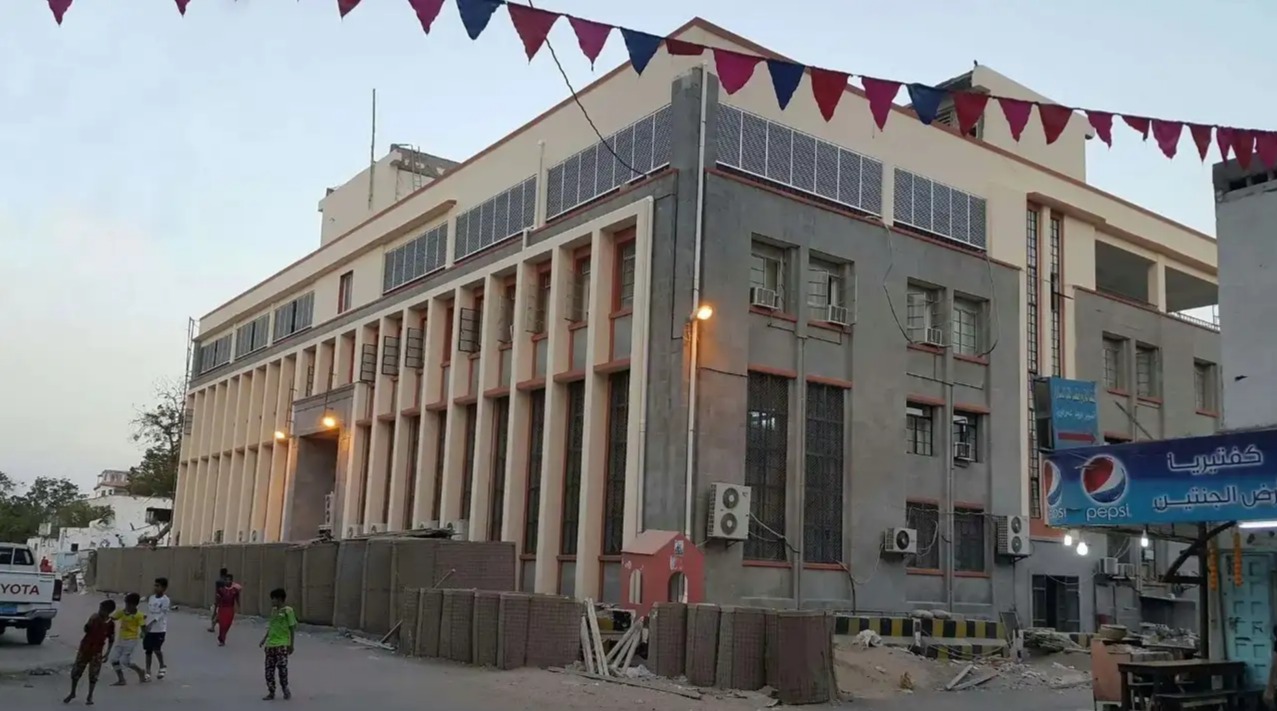
Barran Press
The Central Bank of Yemen, based in the temporary capital Aden, issued a statement on Sunday, July 14th, 2024, condemning "in the strongest terms" the Houthi militia's "arbitrary practices against the national banking sector, particularly commercial and Islamic banks, and microfinance banks whose main offices remain in the occupied capital Sana'a and branches operating in liberated governorates."
The statement, published on the Central Bank's website and reviewed by "Barran Press," accused the Houthis, designated as a terrorist group by the international community, of using "all means of pressure, coercion, and extortion to force banks to close their branches and freeze their operations, in violation of all banking laws and norms."
The Central Bank deemed this "irresponsible" act as "a clear indication of the Houthi militia's dominance over this vital sector and their insistence on tampering with it. On the other hand, it is an indicator of the inability of these banks' administrations to resist Houthi pressure and perform their banking duties in accordance with local and international banking regulations, which safeguards the integrity of the banking sector and the rights and funds of citizens." This could expose the banks and their administrations to "strict legal action" by the Central Bank.
The Central Bank warned the "criminal" Houthi militia against continuing its "reckless practices against national banks, forcing them into practices that contradict banking practices, laws, and prevailing norms regulating banking operations to achieve empty displays and false victories."
The statement called on the Houthis to "stop these practices and violations that have harmed Yemeni citizens, depriving them of their savings and investments, hindering their livelihoods, and nearly cutting off their connection with the world through their terrorist practices and blatant violations of laws and morals."
It also urged "bank management and branches to adhere to banking regulations, not succumb to militia pressure, and avoid following their instructions to avoid being subject to punitive measures."
The Central Bank reassured "the public and depositors at these banks' branches in liberated governorates that they will continue to operate, serve their clients, and fulfill their obligations as usual."
Earlier on Sunday, banking sources reported that banks subject to sanctions by the Central Bank of Yemen had closed their branches in Aden, the declared temporary capital, and the governorates of Taiz and Marib, before reopening later, in compliance with government directives.
The director of the Central Bank branch in Marib, Jamal Al-Kamil, said that they conducted a field inspection that forced the six bank branches to open their doors after they had closed them following instructions from Sana'a, controlled by the Houthi militia.
In a statement to "Barran Press," Al-Kamil added that the bank's administration in Marib received instructions from the governor of the Central Bank in Aden, Ahmed bin Ahmed Ghalib Al-Ma'abqi, to go down and reopen the bank branches that had closed their doors to customers earlier in the day.
He stated that these banks received orders to close from Sana'a, controlled by the Houthi militia, in violation of the decisions of the Central Bank in Aden, which is affiliated with the internationally recognized Yemeni government.
The banks that closed their branches were (Al-Kureimi, Al-Tadhamon Bank, Yemen and Kuwait Bank, Al-Amal Microfinance Bank, Yemen and Bahrain Comprehensive Bank, and Yemen International Bank), despite their exemption from the Central Bank's decision, which included suspending their main offices in areas under Houthi control, for failing to comply with its decision to relocate their main offices from Sana'a to Aden.
Last week, the Central Bank of Yemen in Aden revoked the licenses of (Al-Kureimi, Al-Tadhamon, Yemen and Kuwait, Al-Amal Microfinance, Yemen and Bahrain Comprehensive, and Yemen International Bank) for failing to comply with the decision to relocate their headquarters to Aden.
The decision exempted the branches of the violating banks located in areas under the control of the internationally recognized Yemeni government, allowing these branches to operate "until further notice."
On May 30th, the Central Bank of Yemen in Aden issued a decision suspending dealings with six Yemeni banks and financial institutions after the deadline of 60 days to implement its decision to relocate their headquarters to Aden expired.





